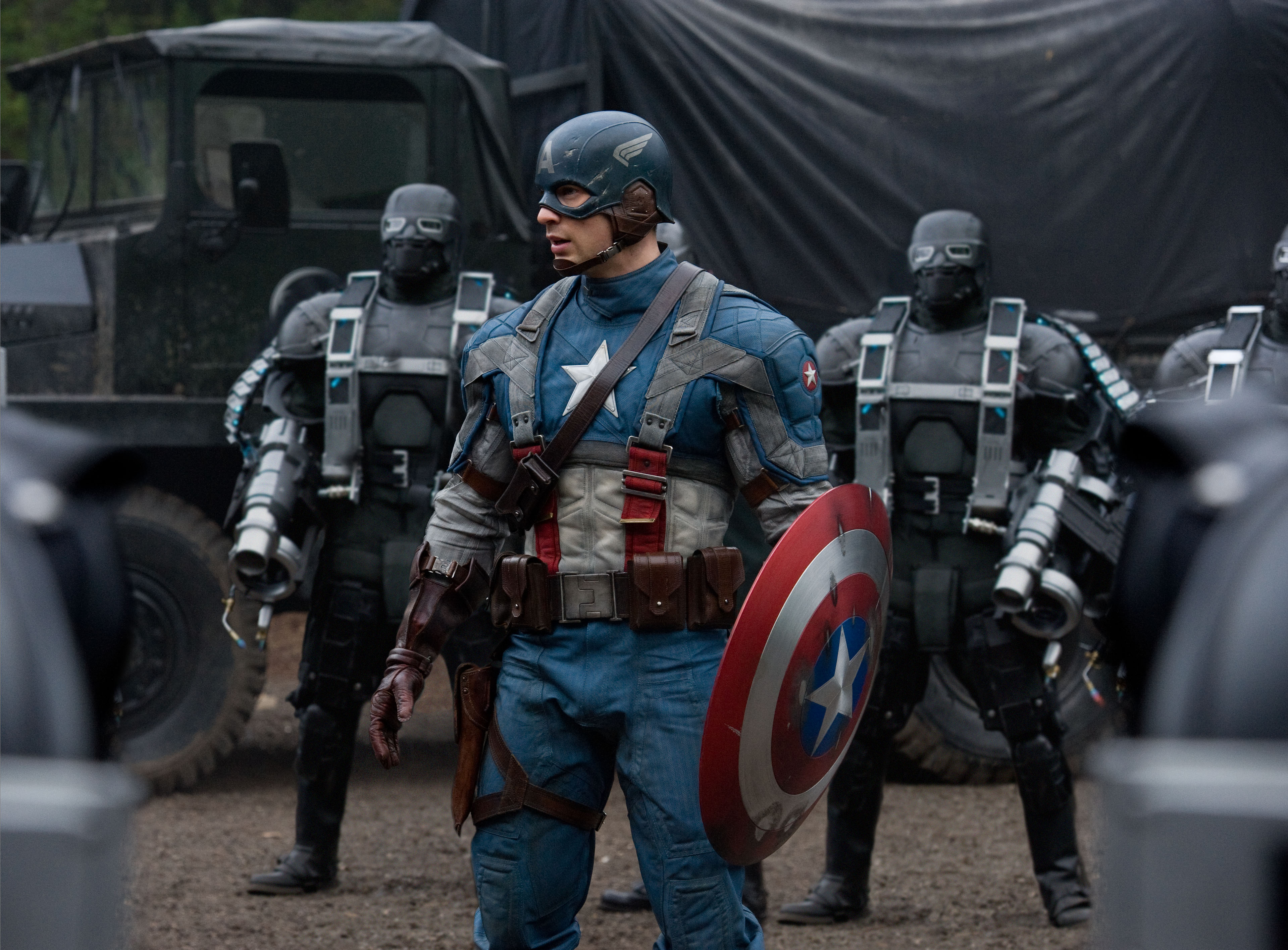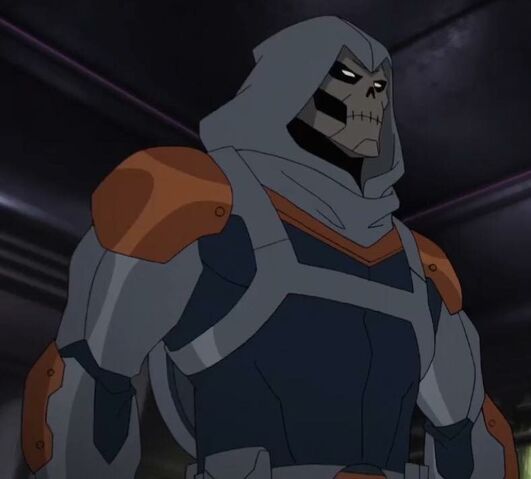Don't know if this kind of thing belongs here, but here it goes! Cookie and kudos to whoever correctly guesses the allusion to a certain OTL game released on the release date mentioned here
 Medal of Honor (2001)
Medal of Honor (2001)
By the early 2000s, competition within the first-person shooter market was starting to increase dramatically, with the genre dominated by sci-fi games. In 1998, developers at a new gaming studio decided to create a brand new first-person shooter IP set in the Second Great War. The idea of setting a game in the Second Great War, especially the war in North America the between United States and the former Confederate States, did not sit well with publishers and developers within the studio at the time and many on the team were highly reluctant to do take part in the project. Sci-fi shooters were considered a "safe" genre to put shooters in and the few new IPs that attempted to set their games in the Second Great War sold poorly, especially on PC. To set a game in that time period and sell it to both the old PC and new console market was deemed too risky. With such a controversial setting the publishers feared it would not sell well in the Southern States or the Northern States and the possibility of enflaming Neo-Freedomite and Neo-Revaunchist groups was a real possibility.
The lead group pushing for this idea, however, managed to convince the rest of the development team to get on board after showing preliminary sketches, story drafts, and other notes in order to get their vision for the game across. By 1999, development on the game was well under way, with the studio taking some time to iron out the story concepts, graphics, game mechanics, and controls. Two military advisors and a number of historians were called in on the project to oversee certain aspects of development and provide a level of direction for the team in terms of authenticity. Friction between the two advisors early in development however nearly resulted in the entire project coming to a halt as the two men were former combatants who served on opposite sides of the war - a retired US army colonel and a former Confederate captain. Surprisingly it was the retired US colonel that criticized the game, saying it was a "dishonorable project". Even more surprising was that the former Confederate captain was able cooperate with the leading team in order to convince the colonel to continue advising the project, saying "it is more dishonorable to let the memory of those horrible times be repressed and manipulated by those who would make us fear the past."
More resistance to the project came in the form of a medal of honor recipient criticizing the project, going as far as to call out the dev team as "southern apologists" and "closet Freedomites" due to the small number of southerners working on the project. This time the recipient threatened to close down the project entirely, sending the publishers into frenzy, worrying that such negative attention ruin them. Once again, with help from the entire team, the medal of honor recipient was given a demonstration and a sneak peak at the game during it development. With help from the advisors in particular, the recipient backed down and went so far as to support the games release based on what he saw. This saved the game from complete cancellation.
Finally, on November 15, 2001 the game was released to the public on the American console system
Playbox and PC, to the frustration of gamers who owned the German gaming system
DreamCore. Contrary to fears and beyond the development teams' expectations the game received almost universal praise and enjoyed massive sales numbers. Critics praised the title's gameplay mechanics, controls, graphics, soundtrack, and especially multiplayer above all else, citing its fluidity and addicting nature in "putting the Greatest War in history into the hands of gamers". In fact its multiplayer element was its greatest draw for gamers on the
Playbox console, who were able to get a unique and addicting multiplayer experience not offered to the same quality as other consoles on the market.
^^^ --- Johnny Peterson, better known as the "Master Sergeant", the player character and main protagonist of the game. As part of the later campaign events to defeat the Confederates in Pittsburgh, he is recruited by the US intelligence service and trained up as a commando to infiltrate behind enemy lines, dressed in a Confederate uniform and armed with a Tredegar Automatic Rifle. Players quickly grew to love his character and critics
The single player campaign was also highly praised for its in-depth, gritty, gripping, and emotional story. Starting off in the year 1942, the player is cast as a US soldier named Johnny Peterson on the front lines in Pennsylvania, thrown into the Battle of Pittsburgh at the height of its intensity as the Confederates drive hard into the city. Through numerous battles across the city and surrounding area the player as Johnny experiences the battle first hand, fighting Confederates street by street, field by field, and house by house.
^^^ --- Mary Adams, secondary protagonist of the game. A native of Pittsburgh, she was originally a factory worker, but earned her gun by fighting off Confederates in the factory districts of the city along side US soldiers, being a worker when there was no fighting and a soldier when there was. The player as Johnny Peterson meets her during a mission to defend the factory she works at from a Confederate assault. She quickly became a popular character among fans and was highly praised by critics.
The player character, after numerous battles within the city fighting along side his squad and Mary, is eventually wounded in action. While recovering he is recommended by his superiors to join an elite commando group to infiltrate behind Confederate lines in advance of a massive counter offensive to encircle the enemy. Disguised as a Confederate soldier the player infiltrates behind enemy lines and wreaks havoc, opening the way for a push by US soldiers to start the encirclement of the city.
The game ends with the player victorious, looking west toward Ohio, into an uncertain yet hopeful future.
^^^ --- Loading screen from the game, showing a US soldier atop a destroyed Confederate barrel.
The game would go on to spawn several sequels, with the second and third installments being even more massively successful than the first title, putting the player character on the front lines to liberate Ohio and eventually take part in Operation Rosebud. The game also inspired many "copycats" and that hoped to "kill" the franchise and become the next big game. It effectively ended the dominance of sci-fi shooters in the market, practically creating the "Second Great War FPS" overnight with its popularity. Its success also encouraged gaming studios to finally branch out and tackle the Second Great War as viable setting for future games.
For example, in Germany, the most famous and most successful of the "copycats" inspired by
Medal of Honor was the
Cross of Iron franchise that was released in 2003 to massive success Europe and North America, effectively becoming
Medal of Honor's rival in the market place.
Cross of Iron takes place in 1941 on the "Ost Front" against the Russians in Poland, Ukraine, and Germany, with players experiencing the battles on that front in a similar fashion as
Medal of Honor.
Another title that originally released in Japan on the Saigo's new
Gameblok that also took influence from
Medal of Honor was called
Journey to Palace Amarapura, a Second Great War game that had a heavy occult-fantasy twist to it that allowed for different type of gameplay. It centered on a Japanese special forces unit tasked with infiltrating India and defeating a British Silver Shirt occult organization bent on harnessing the power of the Hindu gods to conquer the rest of the world for the monarch of Britain. Although not historically accurate in the slightest, it also received massive success in Asia.
Medal of Honor had since gone down in history as being one of the most influential games of all time.

